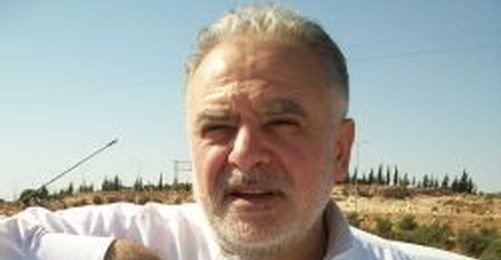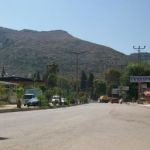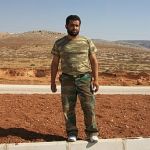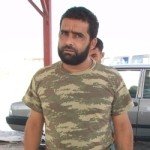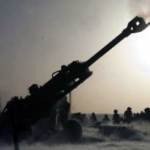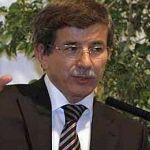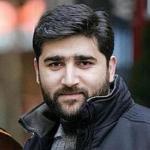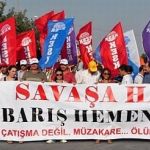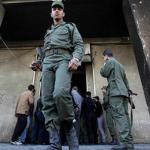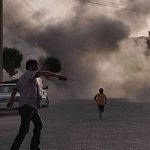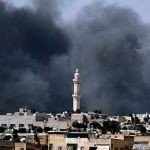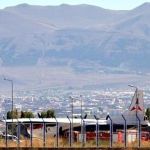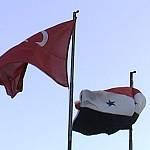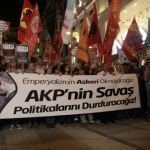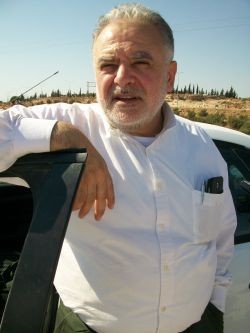 Haitham Qdemathi, a U.S. citizen of Syrian descent who introduced himself as one of the political leaders of the Free Syrian Army (FSA,) told bianet they were grateful for the contributions of both the Turkish government and foreign fighters, such as Al-Qaeda militants, for their contributions to the rebel movement.
Haitham Qdemathi, a U.S. citizen of Syrian descent who introduced himself as one of the political leaders of the Free Syrian Army (FSA,) told bianet they were grateful for the contributions of both the Turkish government and foreign fighters, such as Al-Qaeda militants, for their contributions to the rebel movement.
We met with Qdemathi at a location right next to the Cilvegözü Border Gate in the southern province of Hatay toward the evening. He explained that he had been residing in the U.S. for 30 years but had returned back to the region following the establishment of the FSA.
Qdemathi said his Arabic was not very fluent and thus proceeded to speak to us in English.
"A win-win situation for everyone"
The region where we spoke to Qdemathi contains a tent-camp surrounded by barbed wires and which provides logistical support for FSA fighters. In the middle of the camp sits a flagpole with a gigantic FSA banner on top bearing green, white and black colors, while a Turkish flag is also attached right underneath.
Qdemathi said he mostly lived on the Turkish side of the border, as also attested by the fact that his vehicle bore a Hatay license plate. He told us he had just left some food and medicine in the tent-camp and was back on his way to Hatay.
Following an exchange in which he questioned our identities and the reasons why we had come there, Qdemathi spoke on their role in border controls and their relationship to the Kurdistan Workers' Party (PKK):
"We are trying to put an end to border smuggling. We are working in conjunction with the Turkish government on this; we are helping them," Qdemathi said, adding that the inhabitants of the camp were leaving off at day time to join the fight in Syria and returning back at night, while the wounded were also receiving medical treatment inside the camp.
PKK militants sometimes infiltrate into Turkey through this region, he said. Qdemathi claimed they denied PKK militants entry into Turkey by closing down the border in such times.
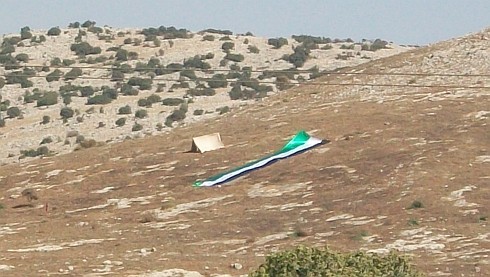
"We warned them not to come to this region, but if they do come, then we are also armed. We would respond to them. We would not let them through here," Qdemathi said. Nevertheless, he also added they had never been involved in an armed engagement with the PKK until this day.
They were providing security for the border entry while bringing critically wounded fighters into Turkey for treatment, he said.
Authorities have already allocated the Mustafa Kemal University Training and Research Hospital to FSA fighters. Syrian doctors are also employed in the medical institution.
"We are working in collaboration with the Turkish government. We keep watch on the Syrian side of the border. This is a win-win situation for everyone," he said.
They were also conducting identity and passport checks for those crossing the border, he added.
Thanking Al-Qaeda militants
"We want freedom. Our goal is to unite the entire opposition. We are calling on everyone to join our ranks. If we end up in a fragmented structure after the regime falls, the reign of chaos would inevitably ensue, followed by a civil conflict, or even possibly by a regional war," he said.
There are Al-Qaeda militants in the FSA coming from a variety of backgrounds, including Yemen, Qatar, Afghanistan and Lebanon, according to some reports. In fact, some Turkish citizens accused of being Al-Qaeda members also lost their lives in the Syrian conflict.
"I am aware of the presence of Al-Qaeda members in the FSA coming from outside of Syria. I have never personally met any of them, however. Nonetheless, we are grateful to all of them for fighting on our ranks," he replied when inquired about these allegations.
Qdemathi also claimed there were Christians and Alevis fighting for the FSA. Just as we were conversing over this matter, however, a quarrel broke out between our guide and Qdemathi's escorts. FSA troops then began walking toward our guide while shouting "Alevi, Alevi!" Other troops subsequently intervened and broke up the fight, while Qdemathi chose to end the conversation there. (AS)





